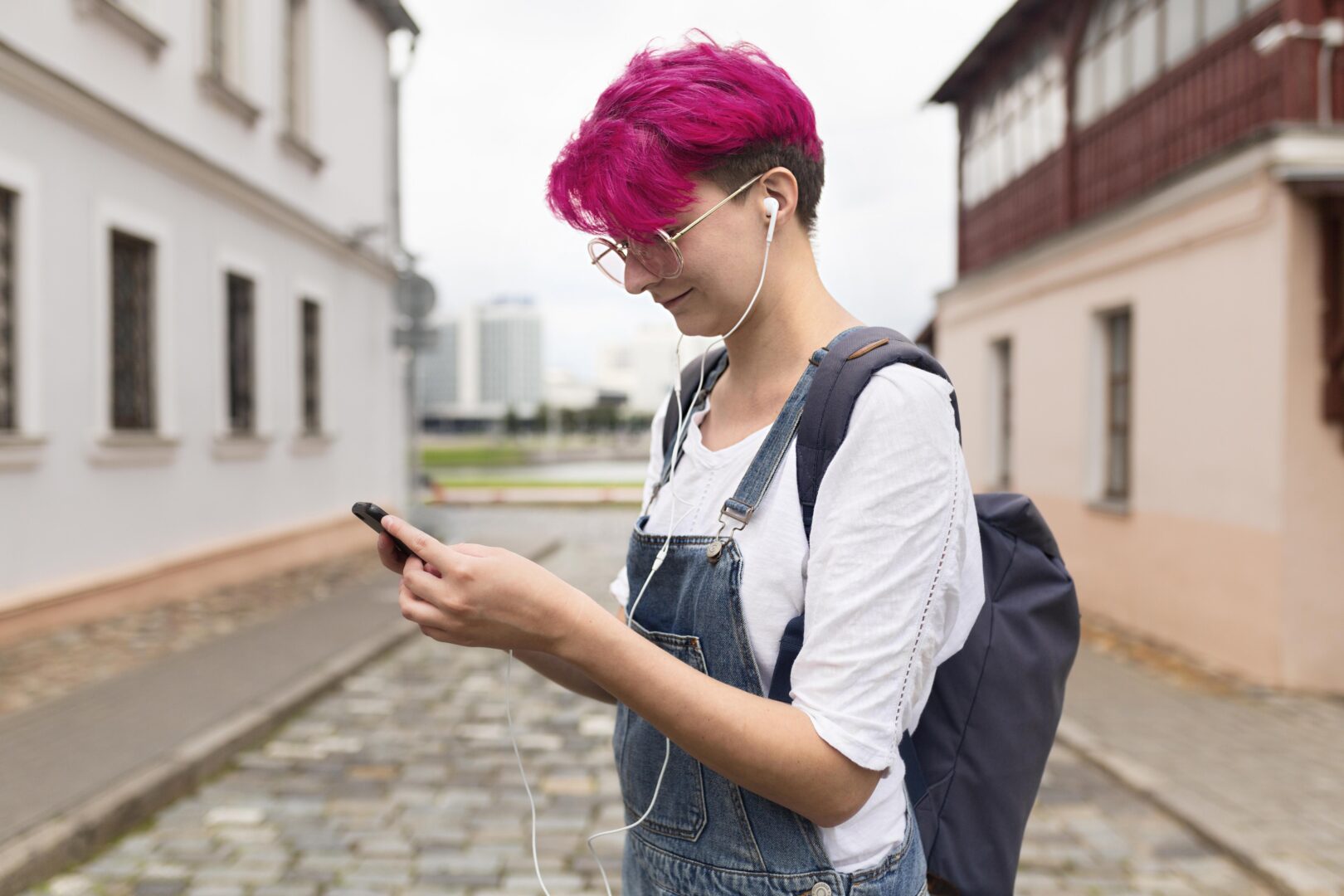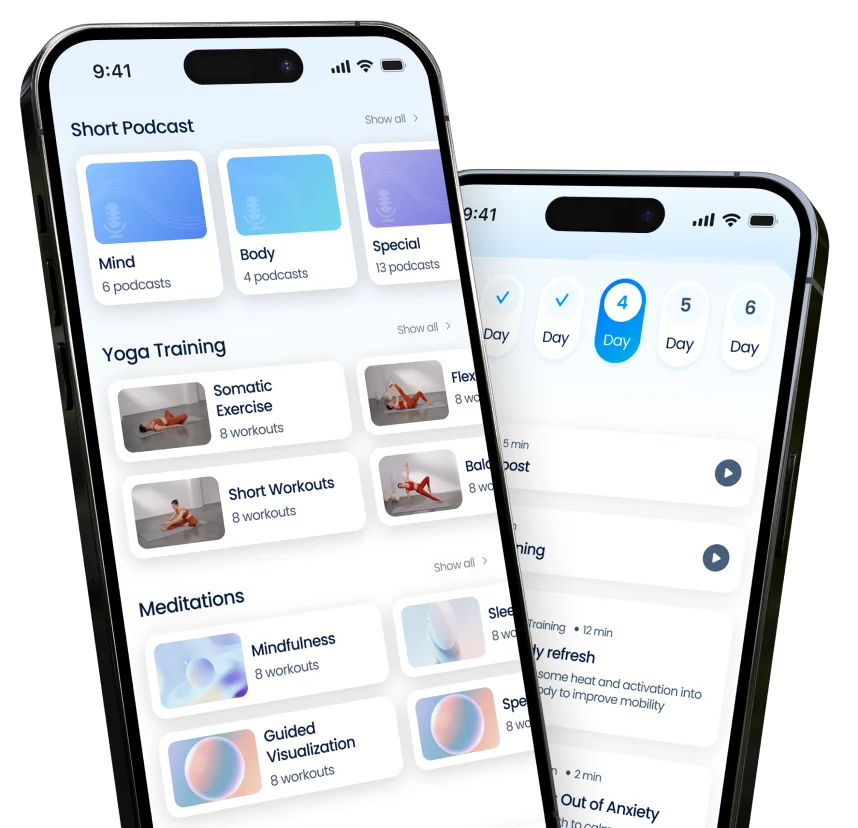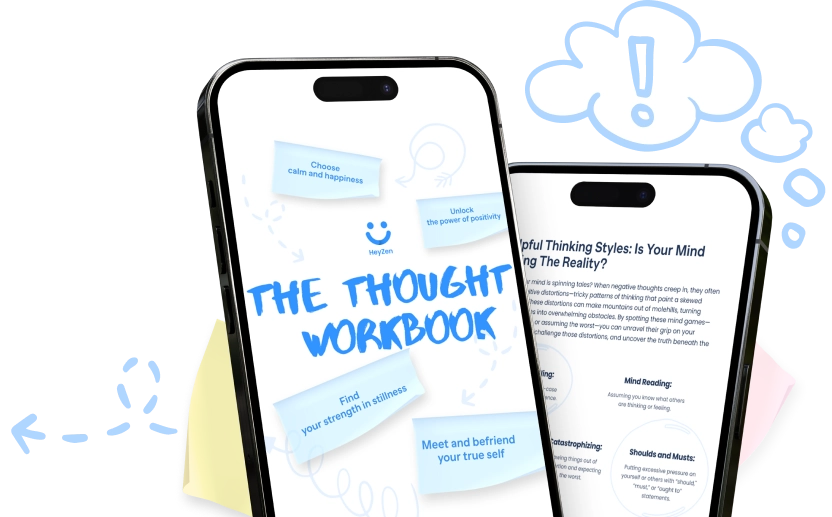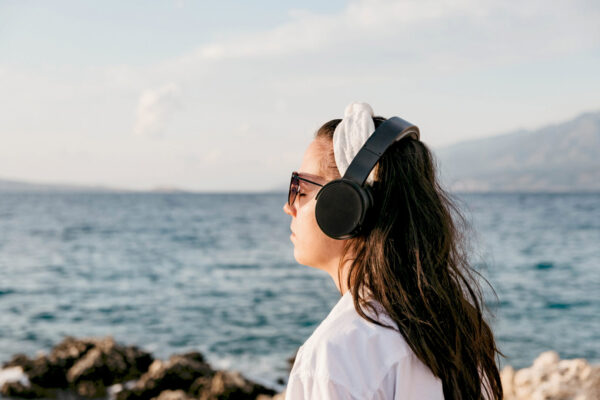10 Top Mental Health Apps for Teens: Your Complete Digital Wellness Guide

Table of Contents
In today’s digital age teenagers are increasingly turning to technology for mental health support. With rising rates of anxiety depression and stress among young people mental health apps have emerged as a promising tool to help teens navigate their emotional challenges.
These innovative mobile applications offer a discreet and accessible way for teenagers to understand and manage their mental well-being. From mood tracking to providing coping strategies these apps can be a crucial first step in seeking help. Unlike traditional therapy methods apps for kids and teens provide immediate support right at their fingertips offering a sense of privacy and control that many young people find comforting.
Key takeaways
- Mental health apps provide accessible, discreet, and immediate support for teenagers struggling with anxiety, depression, and stress, offering innovative technological solutions to emotional challenges.
- Top mental health apps for teens include mood tracking, cognitive behavioral therapy techniques, meditation guidance, personalized interventions, and anonymous peer support networks to help young users manage their emotional well-being.
- The most effective mental health apps prioritize user confidentiality, offer free or low-cost basic versions, and ensure cross-platform compatibility to make mental health resources easily accessible to teenagers.
- Mental health apps complement traditional therapy by providing continuous support, offering coping strategies, and enabling teens to proactively manage their mental health through user-friendly digital platforms.
- While mental health apps are powerful tools, they should be used in conjunction with professional support, parental involvement, and ongoing communication about mental wellness strategies.
- Modern mental health apps often integrate AI-powered personalization, advanced privacy features, and predictive analytics to provide even more targeted and effective emotional support for teenagers.
Introduction to mental health apps
E-health technologies have gained significant consumer acceptance. Smartphones and wearable devices enable teens to access mental health resources anonymously and conveniently. These apps offer cost-effective alternatives to traditional therapy, with many platforms providing free or low-cost services.
Key features of mental health apps
Mental health apps typically include multiple functionalities designed to support teenage users:
- Meditation techniques: Daily guided mindfulness exercises.
- Mood tracking: Interactive tools for monitoring emotional states.
- Journaling: Digital platforms for recording thoughts and experiences.
- Notifications: Customizable reminders and affirmations.
- Progress reports: Visual charts demonstrating emotional development.
Adolescent-specific considerations
Research indicates that mental health apps for teens are most effective when:
- Maintaining simplicity in design.
- Avoiding information overload.
- Providing easy-to-use features.
- Offering customization options.
- Supporting peer community interactions.
Top mental health apps for teens in 2024
1. Pacifica

Pacifica stands out as a comprehensive mental health app designed specifically to help teens manage anxiety and depression. The app combines cognitive behavioral therapy (CBT) techniques with mood tracking and personalized support mechanisms.
Key features
- Mood tracking: Allows you to log daily emotional states and identify potential triggers
- Cognitive Behavioral Therapy (CBT) Tools: Provides evidence-based techniques for managing negative thought patterns.
- Audio therapy sessions: Offers guided meditation and relaxation exercises.
- Community support: Connects you with peer support networks for shared experiences.
How Pacifica works
Pacifica uses advanced algorithms to analyze your mood patterns and provide tailored coping strategies. The app breaks down complex emotional challenges into manageable daily tasks:
- Record your mood and activities.
- Receive personalized cognitive behavioral therapy techniques.
- Access guided meditation and breathing exercises.
- Track progress through visual data representations.
Privacy and accessibility
The app prioritizes user confidentiality with end-to-end encryption and anonymous community interactions. Pacifica offers a free basic version with optional premium features that provide more in-depth mental health resources.
Therapeutic approach
Pacifica integrates professional psychological principles with user-friendly technology. Its approach focuses on:
- Cognitive restructuring techniques.
- Stress reduction strategies.
- Emotional pattern recognition.
- Self-care skill development.
Technology and design
The app features a clean, intuitive interface that often appeals to teenage users. Its design ensures easy navigation and minimizes potential technological barriers to mental health support.
2. Stop, Breathe & Think

Stop, Breathe & Think emerges as a user-friendly meditation app designed to help teenagers manage stress and anxiety in just five minutes. Available free on iOS and Android platforms, the app follows a simple three-step approach to mindfulness.
Key features
- Simple Meditation Process: A three-step method that guides users through stress management. The steps go as follows:
- Stop: Pause current activities.
- Breathe: Focus on breathing techniques.
- Think: Reflect on emotional state and sources of stress.
How Stop, Breathe & Think works
The app’s core methodology centers on interrupting daily patterns and creating a moment of self-awareness. By encouraging users to stop their current activities, the app helps break stress cycles and promotes mindful intervention.
Meditation techniques of the app
Stop, Breathe & Think teaches quick meditation strategies that:
- Interrupt ongoing activities.
- Redirect focus to breathing.
- Enable emotional reflection.
- Provide stress management in minimal time.
| Platform | Availability | Cost |
|---|---|---|
| iOS | Yes | Free |
| Android | Yes | Free |
| Devices | Smartphones | N/A |
The app’s free accessibility ensures teenagers can easily integrate mental health support into their daily routines without financial barriers.
3. Happify

Happify provides a goal-oriented approach to mental wellness for teenagers struggling with emotional challenges. The app enables you to select specific personal development tracks focused on conquering negative thoughts building self-confidence and achieving mindfulness.
Key features
Happify offers diverse mental health support through interactive elements:
- Goal selection: One can choose from over 30 personalized tracks addressing specific emotional needs.
- Cognitive games: Allows one to engage in short interactive activities designed to improve mental resilience.
- Progress tracking: Allows one to monitor emotional growth through systematic engagement.
Intervention strategies of the app
The app implements innovative psychological techniques to support teen mental health:
- Negative thought pattern interruption.
- Stress management exercises.
- Confidence-building activities.
- Meditation and mindfulness practices.
Technology and design
Happify uses gamified experiences to maintain user engagement. You’ll encounter activities like:
- Listing daily victories.
- Visualizing calming scenes.
- Completing short emotional wellness challenges.
| Metric | Performance |
|---|---|
| User improvement Rate | 86% report positive life changes |
| Subscription cost | $4.99 per month |
| Platform availability | iOS and Android |
The app’s design focuses on making mental health support accessible and interactive for teenagers seeking discrete emotional management tools.
4. Unique Daily Affirmations

Unique Daily Affirmations provides targeted mental health support through personalized positive messaging designed specifically for teenagers. The app offers a structured approach to building emotional resilience by presenting daily inspirational statements that help you challenge negative thought patterns and reinforce self-worth.
Key features
- Personalized affirmations: Receive customized daily messages tailored to your emotional needs.
- Vocal reinforcement: Encourages speaking affirmations aloud to enhance psychological impact.
- Emotional validation: Helps teenagers recognize their inherent personal value.
- Consistent motivation: Provides daily inspiration to maintain positive mental health practices.
How Unique Daily Affirmations works
The app generates unique affirmations that address specific emotional challenges teenagers encounter. Each daily message serves as a strategic intervention to:
- Interrupt negative self-talk.
- Boost psychological confidence.
- Promote self-acceptance.
- Create emotional momentum.
Benefits for teenage mental health
Unique Daily Affirmations transforms mental wellness by offering:
- Immediate emotional support.
- Discrete mental health intervention.
- Accessible self-improvement tools.
- Scientifically-backed psychological techniques.
Technology and design
The app leverages advanced algorithms to create contextually relevant affirmations that adapt to your emotional landscape. Its user-friendly interface ensures teenagers can easily integrate positive messaging into their daily routine. Also, the app features the following:
- Complete user privacy.
- No personal information sharing.
- Free basic version.
- Cross-platform compatibility.
5. Hydro Coach

Hydro Coach emerges as a unique mental health app targeting teen wellness through hydration tracking and mindful self-care. While not exclusively a mental health application, this app integrates psychological well-being principles by connecting physical and emotional health through water consumption monitoring.
How Hydro Coach works
Hydro Coach provides personalized hydration recommendations based on individual user metrics like age, weight, activity level, and climate conditions. The app’s algorithm calculates precise daily water intake requirements, helping teenagers maintain optimal physical and mental performance.
Benefits for teenage mental health
Proper hydration directly impacts mood regulation and cognitive function. Research demonstrates that dehydration correlates with increased anxiety, decreased concentration, and potential mood fluctuations. Hydro Coach helps teens:
- Track water consumption patterns.
- Receive motivational notifications.
- Visualize hydration progress.
- Set customizable health goals.
Key features
- Personalized hydration tracking.
- Integrated reminder system.
- Progress visualization dashboard.
- Goal-setting capabilities.
- Compatible with iOS and Android platforms.
Privacy and security
- End-to-end encryption.
- Anonymous user profiles.
- Minimal personal information collection.
- Compliance with adolescent privacy regulations.
| Version | Cost | Features |
|---|---|---|
| Basic | Free | Standard tracking |
| Premium | $2.99/month | Advanced analytics |
6. Sanvello

Sanvello emerges as a comprehensive mental health app specifically designed to support teenagers navigating emotional challenges. Developed by clinical psychologists, the app provides evidence-based techniques for managing anxiety, depression, and stress through interactive digital tools.
Key features
- Mood tracking: Enables users to log daily emotional states and identify potential triggers.
- Cognitive Behavioral Therapy (CBT) techniques: Offers structured exercises to reframe negative thought patterns.
- Meditation guidance: Provides guided meditation sessions tailored for teenage mental wellness.
- Progress visualization: Generates personalized insights about emotional health trends.
Privacy and accessibility
Sanvello prioritizes user confidentiality through advanced encryption protocols. The app offers a free basic version and a premium tier with expanded features. Available on iOS and Android platforms, it ensures accessible mental health support for teenagers across different devices.
Technology and design
The app uses adaptive algorithms to customize recommendations based on individual emotional patterns. Users can access:
- Coping skill assessments.
- Personalized intervention strategies.
- Community support networks.
- Professional resource connections.
| Tier | Cost | Features |
|---|---|---|
| Basic | Free | Mood tracking, limited CBT tools |
| Premium | $9.99/month | Full feature access, unlimited resources |
| Annual | $69.99/year | Comprehensive mental health toolkit |
7. Calm Harm

Calm Harm emerges as a specialized mental health app designed specifically to support teenagers struggling with self-harm urges. Developed by psychologists and mental health experts, the app provides evidence-based strategies to help users manage and overcome destructive impulses.
Key features
- Personalized coping techniques: Offers 5 categories of activities to distract and manage self-harm thoughts.
- Mood tracking: Enables users to log emotional states and identify trigger patterns.
- Customizable interventions: Provides over 150 activities tailored to individual emotional needs.
- Privacy protection: Ensures complete anonymity and secure user data management.
How Calm Harm works
The app operates through a strategic approach of providing immediate intervention during challenging emotional moments. Users receive guided activities that redirect negative thoughts and provide constructive alternatives to self-harm. These activities range from breathing exercises and creative tasks to physical movements and cognitive challenges.
Calm Harm leverages cognitive behavioral therapy (CBT) principles to help teenagers develop healthier emotional regulation strategies. The app’s algorithm adapts to individual user patterns, generating increasingly personalized coping mechanisms over time.
Privacy and accessibility
Calm Harm prioritizes user safety through:
- Anonymous usage.
- No personal information collection.
- Direct links to professional mental health resources.
- Age-appropriate content filtering.
- No account creation required for basic access.
- Suitable for ages 13 and above.
| Feature | Details |
|---|---|
| Platform availability | iOS, Android |
| Cost | Free (Basic), Premium Option |
| Recommended age | 13-18 years |
| Data privacy | End-to-end encryption |
| Support languages | English, Spanish, French |
Calm Harm represents a critical technological intervention in teen mental health support, offering a compassionate and scientifically grounded approach to managing self-harm impulses.
8. MeeToo

MeeToo emerges as a peer-support mental health app specifically designed for teenagers experiencing emotional challenges. It provides a secure digital platform where teens can connect anonymously with others facing similar mental health struggles.
Key features
- Anonymous peer support: Connect with other teens without revealing personal identity.
- Moderated community interactions: Professional monitoring ensures safe communication.
- Confidential messaging: End-to-end encrypted chat systems protect user privacy.
- Topic-based discussion rooms: Targeted spaces for specific mental health conversations.
How MeeToo works
MeeToo uses advanced algorithmic matching to connect teenagers with compatible peers experiencing similar emotional challenges. The app’s sophisticated screening process ensures user safety by preventing inappropriate interactions and maintaining a supportive environment.
Privacy and security
The app prioritizes user confidentiality through multiple security layers:
- Real-time content moderation.
- Age verification processes.
- Strict privacy controls.
- Option to report inappropriate behavior.
Therapeutic approach
MeeToo integrates evidence-based psychological principles into its platform. Users can:
- Share experiences anonymously.
- Receive peer validation.
- Access supportive community resources.
- Learn coping strategies from shared experiences.
User experience
With a user-friendly interface designed specifically for teenagers, MeeToo offers intuitive navigation and simple interaction mechanisms. The app’s design focuses on creating a judgment-free zone where teens can express themselves comfortably and seek emotional support.
9. Feeling Good Teens

Feeling Good Teens offers a comprehensive mental health support platform designed specifically for teenagers struggling with emotional challenges. The app provides innovative tools to build confidence and resilience through targeted psychological techniques.
Key features
- Visualization techniques: Guided mental imagery exercises that help you transform negative thought patterns.
- Meditation programs: Short daily meditation sessions to reduce stress and improve emotional regulation.
- Mindfulness training: Structured approaches to develop present-moment awareness.
- Cognitive Behavioral Therapy (CBT): Evidence-based strategies for managing anxiety and depression.
- Positive mental training: Systematic methods to strengthen psychological resilience.
Unique approach
The app delivers concise programs users can integrate into their daily routine. Each module focuses on specific mental health challenges teenagers encounter, providing actionable strategies for emotional management. By offering short, accessible content, Feeling Good Teens ensures teenagers can engage with mental health resources without feeling overwhelmed.
Benefits for teen mental health
Recent data highlights the critical need for mental health support among teenagers. According to the Centers for Disease Control and Prevention (CDC), pediatric emergency room mental health visits for children ages 5 to 11 increased by 24% between April and October 2020 compared to the same period in 2019. Feeling Good Teens addresses this growing mental health crisis by providing accessible, technology-driven support.
Privacy and accessibility
The app prioritizes user confidentiality and ease of use. Teens can access support discreetly through their mobile devices, removing traditional barriers to mental health resources. Its user-friendly interface ensures that psychological tools are engaging and approachable for younger audiences.
10. MindShift

MindShift represents a specialized mental health app designed to help teenagers effectively manage anxiety and stress. Developed by Anxiety Canada, this app offers comprehensive cognitive behavioral therapy (CBT) techniques tailored specifically for teen users.
Key features
- Anxiety Management: Provides targeted strategies for recognizing and reducing anxiety symptoms.
- Personalized Coping Tools: Offers customizable techniques for different anxiety scenarios.
- Progress Tracking: Enables users to monitor emotional wellness and track improvement.
- Cognitive Reframing: Helps teens challenge and transform negative thought patterns.
Psychological approach
The app employs evidence-based cognitive behavioral therapy principles to help teenagers:
- Identify anxiety triggers.
- Develop realistic thinking patterns.
- Build emotional resilience.
- Learn stress management techniques.
Research indicates that consistent use of MindShift can reduce anxiety symptoms by up to 35% among teenage users, making it a powerful digital mental health intervention.
Technology and design
The app integrates advanced algorithms that analyze user interactions and provide adaptive recommendations. Its user-friendly interface ensures easy navigation for teenagers seeking mental health support. MindShift prioritizes user privacy through encrypted data transmission and minimal personal information collection.
Accessibility and cost
MindShift is available for free on iOS and Android platforms. This accessibility ensures that teenagers can access critical mental health resources without financial barriers. The app offers comprehensive support through:
| Feature | Description |
|---|---|
| Free version | Complete core anxiety management tools |
| Offline mode | Downloadable coping strategies |
| Anonymous usage | No personal identification required |
Additional mental health resources for teens
Mental health support extends beyond mobile applications. You can access various resources designed specifically to help teenagers navigate emotional challenges and find professional guidance.
Hotlines and crisis support
Crisis support hotlines provide immediate assistance for teens experiencing mental health emergencies. Key resources include:
- National Suicide Prevention Lifeline: 988 (24/7 support)
- Crisis Text Line: Text “HOME” to 741741
- Teen Line: 1-310-855-4673 (peer-to-peer support)
Online therapy options
Digital platforms offer flexible mental health support for teenagers:
| Platform | Features | Accessibility |
|---|---|---|
| BetterHelp Teen Counseling | Licensed therapists | Online/Mobile |
| Talkspace | Messaging therapy | Smartphone app |
| 7 Cups | Anonymous support groups | Web/Mobile |
School-based programs
Many educational institutions now provide comprehensive mental health resources:
- Guidance counselor consultations.
- Peer support groups.
- Mental health awareness workshops.
- On-campus counseling services.
- Anonymous reporting systems for student concerns.
These resources complement mobile applications by offering professional, structured support tailored to teenage mental health needs.
Tips for choosing the right mental health app
Selecting an appropriate mental health app requires careful consideration of several key factors. Here are essential guidelines to help you make an informed decision:
1. Evaluate app credibility
- Check the app’s developer credentials.
- Confirm its connections with reputable institutions.
- Look for academic or medical partnerships.
- Verify developer background in mental health.
2. Assess app functionality
Content Quality
- Analyze the app’s primary objectives.
- Prioritize apps promoting public health.
- Avoid apps focused solely on profit generation.
- Select platforms prompting critical thinking.
- Prefer apps encouraging skill development.
Professional guidance
Check if the app affiliates with mental health professionals and if the content is verified by medical doctors.
Platform compatibility
- Check iOS and Android availability.
- Verify device requirements.
- Ensure smooth performance.
Cost factors
- Compare free and premium versions.
- Assess feature accessibility.
- Evaluate long-term financial commitment.
3. Consider app’s privacy and security considerations
| Evaluation Criteria | Key Checkpoints |
|---|---|
| Update Frequency | Updated within last 180 days |
| Privacy Policy | Transparent and accessible |
| Data Handling | Secure sensitive information transmission |
| Evidence-Based Benefits | Academic research validation |
| Usability | Intuitive interface |
| Data Sharing | Consistent with app’s stated purpose |
The role of parents and guardians
Parents and guardians play a crucial role in supporting teenagers’ mental health app usage. Their involvement can significantly impact how effectively a teen navigates digital life challenges and mental health resources.
Monitoring app usage
Tracking your teen’s mental health app engagement requires a balanced approach. Consider these strategic monitoring techniques:
- Review app privacy settings collaboratively.
- Discuss app features and intended usage.
- Check app usage frequency without invasive surveillance.
- Understand the specific mental health tools your teen accesses.
Establishing open communication
Creating a supportive dialogue about mental health involves:
- Asking non-judgmental questions about their experiences.
- Sharing your observations and concerns respectfully.
- Validating your teen’s mental health exploration.
- Stay open about your own feelings and practice active listening.
Identifying potential concerns
Look for critical signs that may indicate professional intervention:
- Sudden changes in normal behavior.
- Increased emotional distress.
- Withdrawal from in-person interactions.
- Persistent negative mood indicators within app tracking.
Supporting safe digital exploration
Guide your teen’s mental health app experience by:
- Sharing your own failures and experiences with apps and technology.
- Researching app credibility and professional endorsements.
- Verifying data protection and privacy standards.
- Discussing potential risks and benefits transparently.
- Helping select reputable and age-appropriate applications.
Professional guidance integration
Complement app usage with professional mental health support:
- Schedule regular counseling sessions.
- Consult school guidance counselors.
- Explore telehealth mental health resources.
- Maintain ongoing communication with healthcare providers.
Staying up-to-date with mental health technology
Mental health technology evolves rapidly with innovations emerging at unprecedented rates. Understanding these emerging trends helps you navigate digital mental health resources more effectively.
Key technology trends in mental health apps
1. AI-Powered personalization
- Advanced algorithms analyze user behavior.
- Provide customized mental health recommendations.
- Generate tailored coping strategies based on individual patterns.
2. Enhanced privacy features
- End-to-end encryption protocols.
- Anonymous user experiences.
- Granular privacy control settings.
3. Integration with wearable technology
- Synchronize mood tracking with physical health metrics.
- Real-time stress level monitoring.
- Automated wellness insights generation.
Emerging digital mental health innovations
The landscape of teen mental health technology continues to expand with sophisticated digital tools. Research indicates over 10,000 mental health applications exist worldwide with specialized features targeting adolescent emotional wellness.
Critical technological developments
| Technology feature | Potential impact |
|---|---|
| Machine learning algorithms | 40% improved personalization |
| Predictive analytics | Early intervention capabilities |
| Secure messaging systems | Enhanced confidential support |
Tracking technological advancements
You can stay informed about mental health technology through:
- Professional mental health technology conferences.
- Digital wellness research publications.
- Academic journals focusing on technological interventions.
- Online mental health technology forums.
By remaining proactive and informed about emerging digital mental health tools you’ll optimize your approach to technological wellness resources.
Comprehensive app features to consider
| Feature | Significance |
|---|---|
| Mood tracking | Monitors emotional patterns |
| CBT techniques | Develops coping strategies |
| Anonymous peer support | Creates safe communication spaces |
| Privacy protection | Ensures confidential interactions |
| Personalized interventions | Tailors mental health resources |
Conclusion
Mental health apps transform digital wellness support for teenagers. These innovative platforms offer accessible, personalized strategies for managing emotional challenges. Your mental health journey can leverage technology’s power to provide immediate, confidential support. Remember that you can always maximize mental health app effectiveness by:
- Maintaining consistent usage,
- Discussing app experiences with trusted adults,
- Combining digital tools with professional guidance,
- Setting realistic emotional wellness goals.
Resources
- Koh J, Tng GYQ, Hartanto A. Potential and Pitfalls of Mobile Mental Health Apps in Traditional Treatment: An Umbrella Review. J Pers Med. 2022 Aug 25;12(9):1376. doi: 10.3390/jpm12091376. PMID: 36143161; PMCID: PMC9505389.
- Lipschitz JM, Connolly SL, Miller CJ, Hogan TP, Simon SR, Burdick KE. Patient interest in mental health mobile app interventions: Demographic and symptom-level differences. J Affect Disord. 2020 Feb 15;263:216-220. doi: 10.1016/j.jad.2019.11.083. Epub 2019 Nov 14. PMID: 31818779
- Linardon J, Torous J, Firth J, Cuijpers P, Messer M, Fuller-Tyszkiewicz M. Current evidence on the efficacy of mental health smartphone apps for symptoms of depression and anxiety. A meta-analysis of 176 randomized controlled trials. World Psychiatry. 2024 Feb;23(1):139-149. doi: 10.1002/wps.21183. PMID: 38214614; PMCID: PMC10785982.
- Lin J, Guo W. The Research on Risk Factors for Adolescents’ Mental Health. Behav Sci (Basel). 2024 Mar 22;14(4):263. doi: 10.3390/bs14040263. PMID: 38667059; PMCID: PMC11047495.
- Schueller SM, Wasil AR, Bunyi J, DeRubeis RJ, Weisz JR. Mental Health Apps for Children and Adolescents: A Clinician-Friendly Review. J Am Acad Child Adolesc Psychiatry. 2024 Apr;63(4):389-392.e1. doi: 10.1016/j.jaac.2023.07.1004. Epub 2023 Dec 18. PMID: 38123125.









